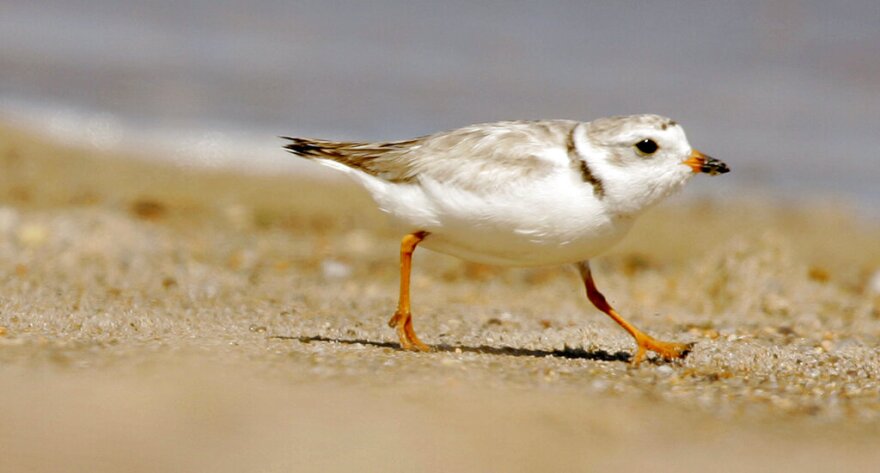SYRACUSE, NY (WRVO) - Piping Plovers are a species of bird indigenous to three main parts of the U.S., including the Great Lakes region–where the 72 remaining nesting pairs are categorized as endangered.
This year, two pairs have decided to settle around Sandy Pond, which is a sand-filled inlet in Sandy Creek, N.Y. Jonathan Cohen, an associate professor of wildlife ecology at SUNY College of Environmental Science and Forestry, said that it’s not uncommon for them to settle in a place like Sandy Pond.
“Their preferred nesting habitat is open Sandy areas along shorelines whether it's coastal shorelines or the Great Lakes,” said Cohen.
While they’re harmless creatures, their presence has stalled local sand dredging–a necessity for boats to go in and out of the inlet, especially since Lake Ontario is seeing low water levels this year.
So Rep. Claudia Tenney (R–New Hartford) is pushing to resume dredging despite their presence.
“I mean, they're adorable, but unfortunately… these two tiny birds [could] cause the livelihoods and the property values of a lot of people,” said Tenney.
Tenney sent a letter to the U.S. Fish and Wildlife Service and the Army Corps of Engineers asking them to temporarily suspend the Endangered Species Act so they can finish dredging and hopefully salvage the rest of the tourism season.
“We can easily do the dredging without affecting the habitat at all of the plovers,” said Tenney.
However, Cohen, an expert in Piping Plovers, said dredging so close to the birds can pose a great threat to them.
“It would be very disturbing to have mechanical action like that on the beach right now,” he said.
The Endangered Species Act can only be suspended for human safety or to protect against property damage. Tenney said, not only is the lack of dredging impacting tourism, it’s endangering the residents around Sandy Pond.
“They can't get their boats in and out of there and the rescue boats are actually down here, so they can't get in either,” said Tenney. “So it's actually a safety issue.”
However, Cohen said their presence in Sandy Pond is a result of monumental recovery efforts by federal agencies.
“They're part of these beach environments,” he said. “Whether they cause a problem is really a matter of humans and the value that we place on different parts of the beach.”
Tenney suspects that the U.S. Fish and Wildlife Service and the Army Corps of Engineers intend to wait until after the tourism season–when the birds will migrate south–to finish dredging.


